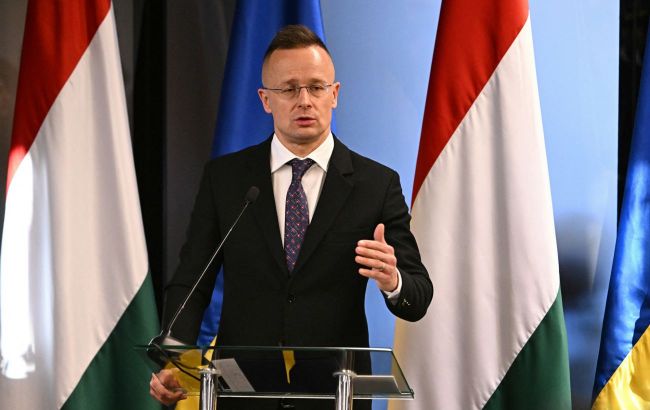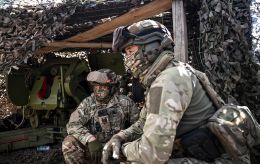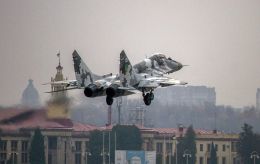Hungary to send its share of Peace Fund to Chad
 Hungarian Foreign Minister Péter Szijjártó (Getty Images)
Hungarian Foreign Minister Péter Szijjártó (Getty Images)
Hungary has opted to contribute its €14 million share of the Peace Fund to Chad rather than Ukraine, explaining the rationale behind the decision, according to Hungarian Foreign Minister Péter Szijjártó during a press conference with Chad’s Foreign Minister Abderrahman Koulamallah, citing Telex.
It was stated that the funds would be directed towards strengthening security in Chad and establishing a new educational institution to train officers. Hungary seeks to enhance Chad’s military and defense capabilities.
Szijjártó hinted at Ukraine by emphasizing that Hungary supports a peaceful resolution to conflicts. He suggested that this is why Hungary declined to channel the funds into the European Peace Facility, which is primarily focused on military assistance to Ukraine.
Speaking about the relationship between Chad and Hungary, Szijjártó said that both nations are committed to peace.
"We are two countries that are very careful to preserve their sovereignty, two countries that are clearly committed to peace. Two countries that clearly believe that wars can and must be resolved by negotiation, not by weapons," Szijjártó said.
Hungary's proposal will be included in the agenda of the EU Committee of Ambassadors meeting scheduled for September 26.
"We hope that this proposal will be adopted," the Hungarian Foreign Minister added.
Hungary's stance on Russia’s war against Ukraine
The Hungarian government has repeatedly demonstrated a rather unusual stance for a European country concerning Russia’s aggression against Ukraine. Budapest has often signaled approval of Russian actions through its policies and statements. Hungary has frequently disrupted EU votes on aid to Ukraine and has even suggested that Kyiv should surrender its territories and citizens to the occupiers.
Prime Minister Viktor Orbán maintains economic and energy ties with Russia, criticizes EU sanctions against Moscow, and expresses doubts about the effectiveness of aid to Ukraine. Within the EU, Hungary’s actions have drawn sharp condemnation, with Orbán accused of advancing pro-Russian interests.
European Peace Facility
The European Peace Facility is a financial tool established by the European Union in 2021 to support peacekeeping missions and enhance security in partner countries. The fund’s primary aim is to ensure peace and stability, as well as to assist countries facing conflicts or threats.
The facility enables the financing of military aid, including the provision of weapons, equipment, and training for military personnel. This makes it a unique tool, as the EU had previously focused predominantly on civilian assistance.
Following Russia’s invasion of Ukraine in 2022, the European Peace Facility became a crucial source of support for the Ukrainian Armed Forces, funding the supply of arms and military equipment from EU member states. It is also used to support peacekeeping missions in other conflict zones around the world.
Hungary recently eased visa requirements for Russian citizens, a decision that was met with criticism from other EU nations, warning that it poses a security risk to the Union.

